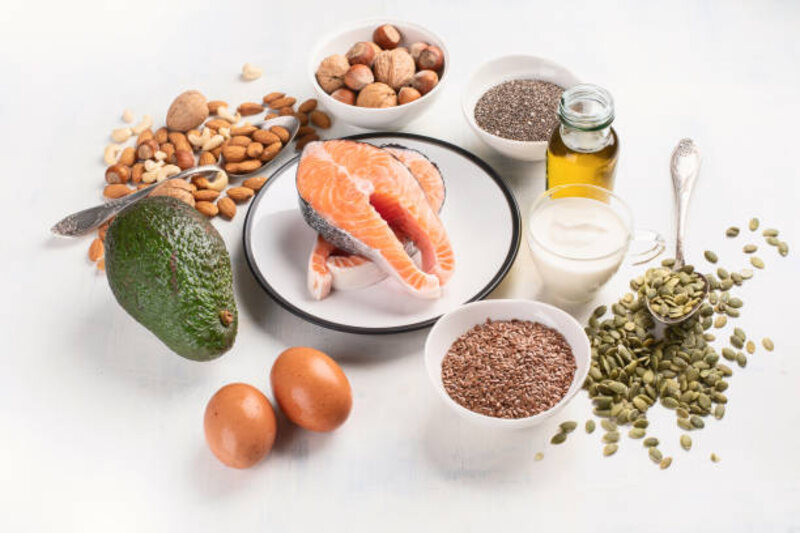Are you looking to find out the power of purine-rich foods? Have you heard that they may be beneficial for your health but don’t know how exactly? If so, you’ve come to the right place! In today's blog, we will talk about why adding purine-rich foods into your diet could help improve and support your overall wellbeing. From nutrition benefits to reducing inflammation in the muscles and joints, discover the range of potential ways these nutrient-dense super foods can influence your life. So grab a cup of java (or other favorite beverage) and let's learn together the ins and outs of unleashing optimum health through incorporating purines into an already healthy lifestyle.
Understanding Purines: A Fundamental Overview
 Purines, which are natural substances abundantly present in various foods and within our own cells, play a crucial role in DNA and RNA synthesis, serving as the building blocks of our genetic makeup and essential for optimal cellular function. However, it is worth noting that the metabolic breakdown of purines results in the generation of uric acid, a byproduct with potential implications for human health.
Purines, which are natural substances abundantly present in various foods and within our own cells, play a crucial role in DNA and RNA synthesis, serving as the building blocks of our genetic makeup and essential for optimal cellular function. However, it is worth noting that the metabolic breakdown of purines results in the generation of uric acid, a byproduct with potential implications for human health.
The Connection between Purines and Uric Acid
Uric acid, while essential in small amounts, can pose problems when it accumulates excessively in the body. When levels of uric acid rise, it can contribute to the development of conditions such as gout. In this condition, uric acid crystals accumulate in the joints, leading to excruciating pain, inflammation, and discomfort. Managing uric acid levels is crucial to prevent the onset of such debilitating conditions and maintain overall well-being.
Dispelling the Misconceptions: Are Purine-Rich Foods Harmful?
Contrary to common misconceptions, consuming purine-rich foods does not automatically equate to increased uric acid levels or adverse health effects. It's important to note that purines are natural substances found in various foods and are also produced by our bodies.
While high levels of uric acid can contribute to certain health conditions, such as gout, it's crucial to understand that moderation and a well-balanced diet play a significant role in managing uric acid levels effectively. By incorporating a variety of nutrient-rich foods and maintaining a healthy lifestyle, individuals can ensure optimal uric acid control and overall well-being.
The Benefits of Purine-Rich Foods
Purine-rich foods, despite the misconceptions surrounding them, offer several health benefits when consumed in moderation as part of a well-balanced diet. Here are the key advantages of including purine-rich foods in your meals:
- Protein Source: Purine-rich foods are excellent sources of protein, a crucial macronutrient essential for muscle development, tissue repair, and overall body function. Protein aids in building and maintaining lean muscle mass, promoting a healthy metabolism.
- Antioxidant Properties: Many purine-rich foods, particularly fruits and vegetables, are rich in antioxidants. Antioxidants help neutralize harmful free radicals in the body, reducing oxidative stress and supporting a strong immune system.
- Heart Health: Certain purine-rich foods, like fatty fish (e.g., salmon, mackerel, sardines), are abundant in omega-3 fatty acids. Omega-3s are beneficial for cardiovascular health, reducing the risk of heart disease by lowering cholesterol levels, blood pressure, and inflammation.
- Rich in Essential Nutrients: Purine-rich foods often contain an array of essential vitamins and minerals crucial for optimal bodily functions. These nutrients contribute to bone health, brain function, energy production, and overall vitality.
- Energy Boost: Purines are vital components of DNA and RNA, playing a fundamental role in energy metabolism. Including purine-rich foods in your diet can support increased energy levels, aiding in overall productivity and daily activities.
- Balanced Nutrition: Incorporating purine-rich foods in a balanced diet ensures a well-rounded nutritional intake. When combined with other food groups, they contribute to a diverse and comprehensive nutritional profile, meeting the body's dietary needs.
- Metabolic Support: Purines assist in maintaining metabolic balance within the body. They aid in breaking down and utilizing energy from the foods we consume, helping regulate metabolic processes and sustain an efficient metabolism.
Best Practices for Incorporating Purine-Rich Foods
To enjoy the benefits of purine-rich foods while maintaining a balanced uric acid level, consider the following tips:
- Moderation is Key: When it comes to consuming purine-rich foods, it's important to practice moderation. By doing so, you can prevent the excessive accumulation of uric acid, which is crucial in maintaining optimal health and reducing the risk of conditions like gout.
- Stay Hydrated: Ensuring adequate hydration is not only important for overall well-being but also plays a vital role in flushing out uric acid from the body. By keeping yourself properly hydrated, you can reduce the risk of developing gout and other related issues.
- Consult a Healthcare Professional: If you have specific health concerns or pre-existing conditions related to uric acid, it is strongly advised to seek guidance from a healthcare professional. They can provide personalized dietary recommendations to meet your needs and help manage uric acid levels effectively.
Conclusion
Purine-rich foods, such as organ meats, seafood, and certain vegetables, contain compounds that can influence uric acid levels in the body. While high levels of uric acid can contribute to conditions like gout, it's important to note that not all purine-rich foods are created equal. For example, some vegetables like spinach and asparagus have lower purine content compared to meat and seafood.
By incorporating a variety of purine-rich foods into your diet while practicing moderation, you can enjoy their nutritional benefits. Pairing them with other nutrient-dense foods like whole grains, fruits, and vegetables can help maintain a well-balanced eating plan. It's always a good idea to consult with a healthcare professional or registered dietitian to personalize your diet based on your specific needs and health conditions.Remember, moderation and balance are key when it comes to incorporating purine-rich foods into your diet.




